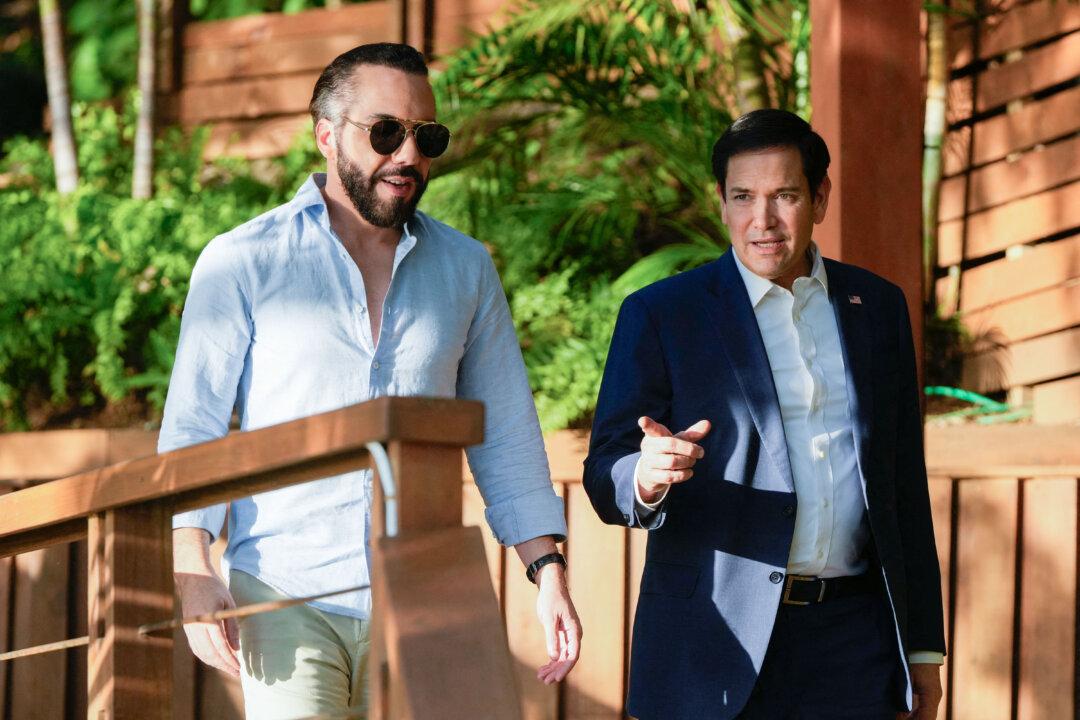U.S. Secretary of State Marco Rubio said on Monday that El Salvador President Nayib Bukele has agreed to accept deported criminal illegal immigrants from the United States of any nationality, in what he called the “most unprecedented” migratory agreement in the world.
At a signing ceremony for a civil nuclear agreement with El Salvador’s foreign minister, Rubio said that Bukele has offered his “full cooperation” in U.S. illegal immigrant deportation efforts, including agreeing to take in “dangerous American criminals” with U.S. citizenship.





